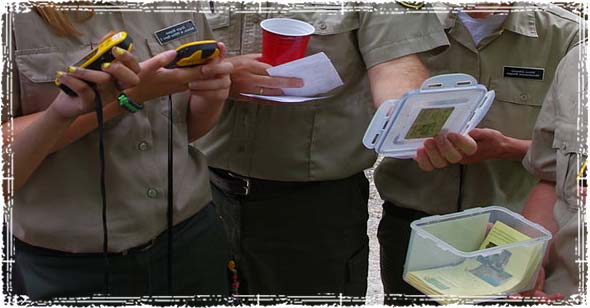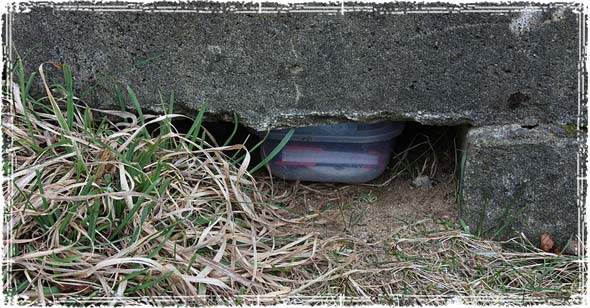Have you ever heard of Geocaching?

When I first heard of Geocaching, I honestly didn’t know what to think. But over the last couple of years it’s grown in popularity, and introduced millions of peoples to the great outdoors.
Geocaching is a family activity that can be a great way to introduce your kids to the outdoors in a fun and exciting way. It’s one of the fastest growing outdoor activities, and is basically a modern day version of treasure hunting.
So what exactly is Geocaching? Check out this video.
What’s a Cache?

Caches are hidden all over the world by people involved in geocaching. These geocachers hide various items in weather proof containers throughout the world. Typical Caches have a logbook where the geocacher enters the date they found the cache and signs it with their code name.
Once the cache is found, and the log book has been signed, the cache must be placed back exactly where the person found it.
The geographical coordinates of these containers are then posted either on social media websites or on one of several websites that geocachers follow. One of the first geocaching communities and still most popular is geocaching.com. According to the website there are somewhere around 2,691,075 geocaches around the world. Another site that has become popular with geocachers is opencaching.com
All you need to get started is a GPS Device:
To find the Cache, all you need is a small portable GPS device. A GPS (Global Positioning System) unit is an electronic tool that shows you where to go based on information it gets from satellites in space. Most modern cellphones have apps that will work as a GPS device.
Geocaching Rules & etiquette
- If you take something from a cache, leave something in return.
- Keep things safe. Don’t leave behind anything that may endanger other geocachers.
- Keep things family friendly. Don’t leave obscene comments or items in the cache.
- No digging is allowed, and make sure you always respect local laws, including property boundaries and no trespassing signs.
- Never move or remove a cache. Log any issues with damaged caches on the site you are using for cache data.
- Leave No Trace. You should never disturb the environment, and you should do your best to leave no trace on the land.




i saw this in a book,i thougth it looked fun ,i just dont have the time.